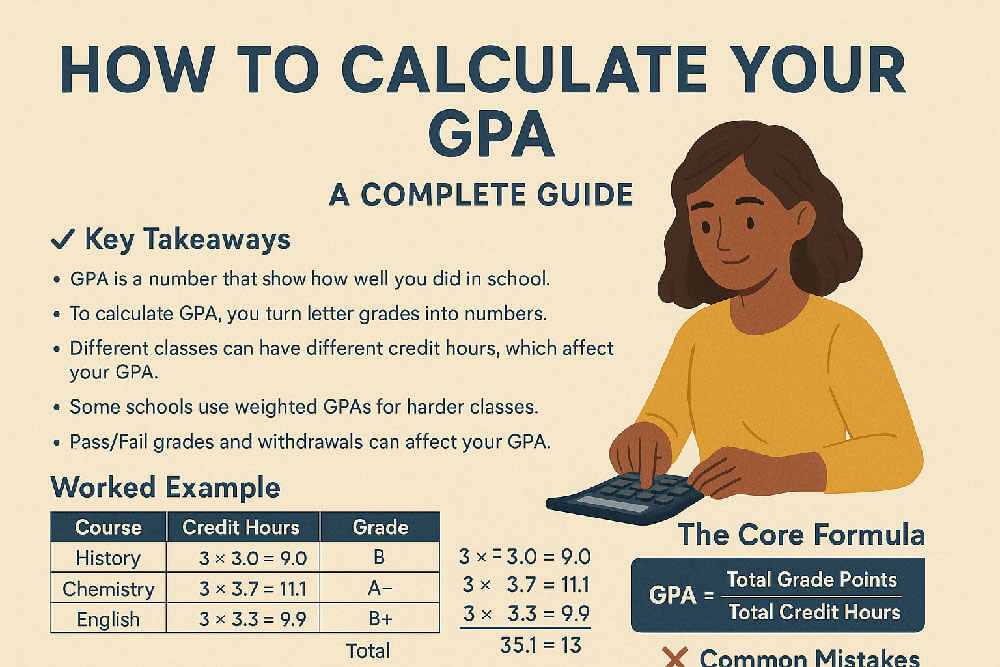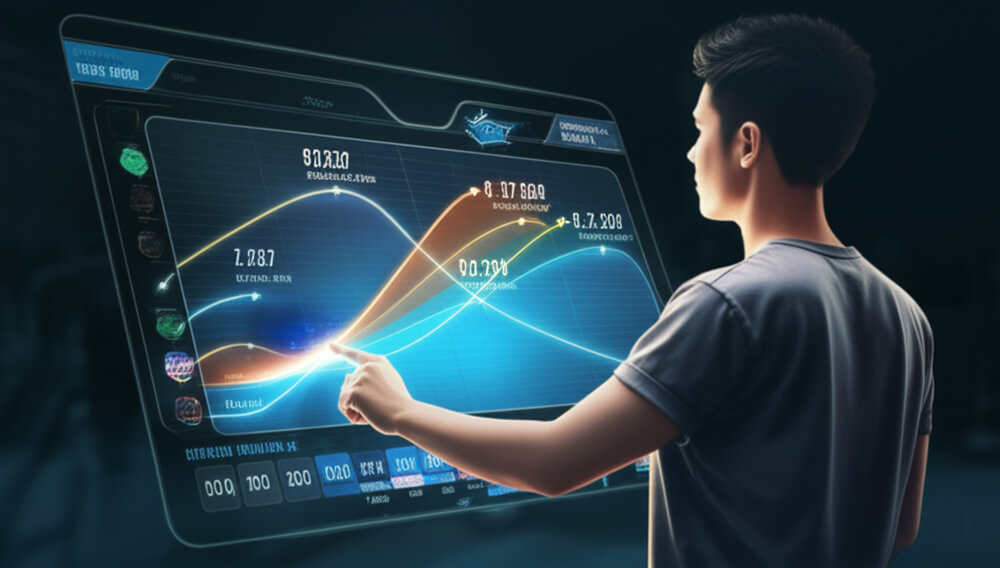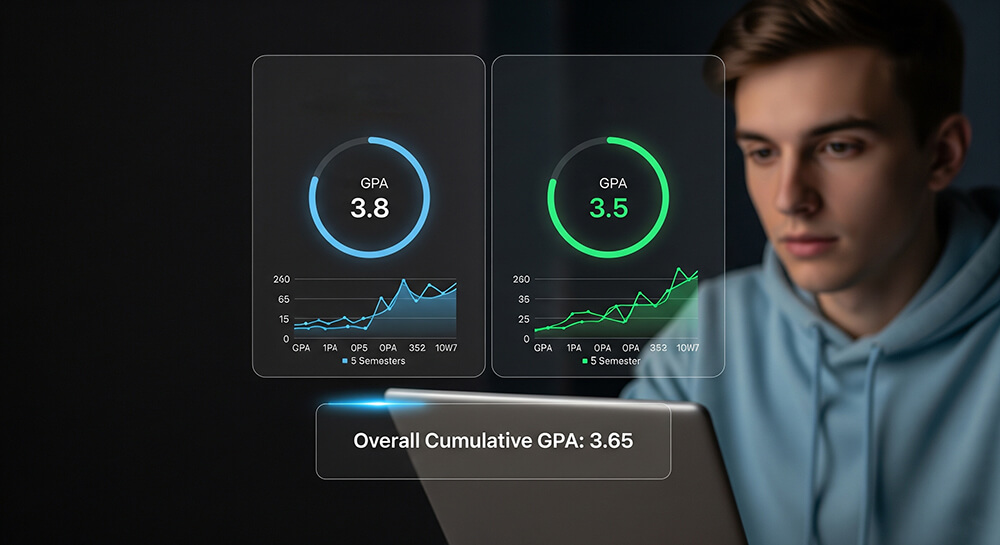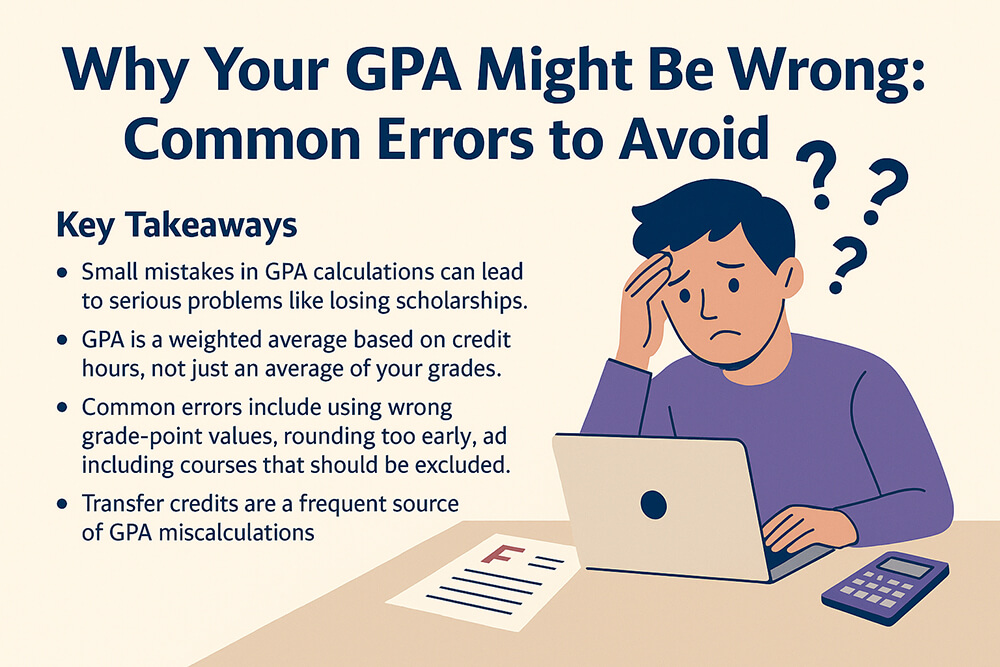Key Takeaways
| Feature | Description | Key Insight |
|---|---|---|
| GPA Impact | Online courses can lower your GPA. Studies show grades can drop by about 0.15 to 0.44 points compared to in-person classes. | The flexibility of online classes requires strong self-discipline. A lack of structure can lead to lower grades for some students. |
| Success Factors | Your success in online courses depends on your learning style. Students who manage their time well can use online classes to raise their GPA. | Online classes are a tool. Strategic use can help you graduate faster or improve your academic record. |
| Risk of Withdrawal | Students are slightly more likely to withdraw from online courses. This can affect financial aid and graduation timelines. | Planning for incomplete grades is important. An incomplete grades scenario planner can help you prepare for unexpected events. |
| Calculation Tools | An Online-Course GPA Impact Estimator helps you see how online classes might change your GPA before you enroll. | Using a college GPA calculator allows you to model different grade scenarios and make informed decisions about your course load. |
How Online Courses Can Change Your GPA
Online courses offer great flexibility. You can learn from anywhere. This freedom, however, can affect your Grade Point Average (GPA). Some studies show that students' grades are lower in online classes compared to face-to-face courses. This happens because online learning requires more self-motivation. Without a fixed class schedule, it is easy to fall behind. Understanding the basic GPA formula guide is the first step. It helps you see how one lower grade can pull down your average. Knowing how to calculate GPA puts you in control of your academic future.
Understanding the Numbers: Quality Points and Credits
Your GPA is a simple average of your grades. Each letter grade equals a certain number of quality points. An 'A' is usually 4.0 points, a 'B' is 3.0, and so on. These points are then multiplied by the number of credit hours for each course. A good credit-hour weighting GPA guide can explain this in detail. The total quality points are divided by the total credit hours to find your GPA. Understanding the difference between quality points vs. GPA explained is key. It helps you predict how a grade in a 3-credit online course will affect your GPA differently than a 1-credit lab.
The Difference Between Weighted and Unweighted GPA in Online Courses
Schools use two main types of GPA: weighted and unweighted. An unweighted GPA is on a 4.0 scale. A weighted GPA gives more points for harder classes, like Advanced Placement (AP) or honors courses. Our GPA weighting guide for honors/AP shows how these can boost your average. Many weighted GPA myths are debunked by understanding that not all schools use this system. When taking online courses, you need to know if they are considered advanced. This will help you understand the difference between weighted vs. unweighted GPA and how your online classes fit in.
Special Grades in Online Learning
Online courses sometimes have different grading options. You might take a class as pass/fail. It is important to know how pass/fail grades impact your GPA, as they usually do not affect it but still count for credit. Sometimes, you may not be able to finish a course on time. This results in an 'I' for incomplete. A guide on GPA planning for incomplete grades can help you manage this. Using an incomplete grades scenario planner helps you see the potential impact on your GPA and make a plan to complete the coursework.
Using a College GPA Calculator for Online Classes
A smart way to manage your grades is with a calculator. A high school GPA calculator can prepare you for college-level tracking. Once in college, a college GPA calculator is a vital tool. You can enter your expected grades for online and in-person classes to see the effect on your semester GPA. This helps you balance your workload. The main goal of www.thegpacalculator.com is to give you the tools to succeed. An estimator for online courses helps you make smart choices before registration.
Planning for the Future: Scenarios and Projections
GPA tools help you look ahead. A freshman year GPA predictor can set you on the right path from the start. As you progress, a mid-term grade projection slider lets you see where you stand and what you need on finals. For students nearing graduation, a last 60 credits GPA calculator is useful for graduate school applications. These tools allow you to run different "what-if" scenarios. For example, you can see how taking two online courses might change your final GPA compared to taking one. This planning is key to achieving your academic goals.
Handling Special Academic Situations Online
Your academic journey can have unique paths. You might be a transfer student. A transfer credits GPA integrator helps you see how credits from another school will affect your GPA. If you are pursuing two degrees, a dual-degree GPA splitter can manage your grades for each program. Sometimes you may need to retake a class you took online. A repeat course GPA recalculator will show you how the new grade replaces the old one. These tools help manage complex situations so you can stay on track.
Avoid Common Mistakes When Calculating Your GPA
Simple errors can lead to an incorrect GPA. One of the most frequent issues is converting letter grades to points. A letter to point GPA conversion guide ensures accuracy. Another common problem is not including all courses or using the wrong credit hours. Following a guide on common GPA calculation errors to avoid can save you from these mistakes. It is also wise to perform a regular transcript GPA audit guide to check for any discrepancies. Staying careful with your calculations gives you a true picture of your academic standing.
Frequently Asked Questions (FAQ)
How do online courses affect my chances for the Dean's List? To qualify for the Dean's List, you need to meet a certain GPA threshold. A Dean's list eligibility checker can help you track your progress. If online courses lower your GPA, it could impact your eligibility.
Do schools that use trimesters calculate GPA differently for online courses? The calculation method is generally the same. A trimester GPA calculator can help you manage your grades in a trimester system, whether your courses are online or in person.
Can I get a 5.0 GPA with online AP classes? Yes, if your school uses a weighted scale that goes up to 5.0. A 5.0 GPA scale guide explains how taking weighted online courses like AP or IB can raise your GPA above a 4.0.
How do I convert my online International Baccalaureate (IB) grades to a GPA? An IB to GPA conversion guide provides the information needed to translate your IB scores from online courses into a standard U.S. GPA.
Do different school districts have different GPA rules for online classes? Yes, policies can vary. This guide on how school districts calculate GPA explains the differences you might encounter with online learning at the high school level.
What is GPA inflation and does it apply to online courses? GPA inflation is the trend of average GPAs rising over time. The guide on GPA inflation vs. deflation discusses this trend, which can also be observed in online course grading.
Which calculator should I use for weighted and unweighted online courses? The weighted vs. unweighted GPA calculator is the right tool. It allows you to input different grade weights for your online and in-person classes to get an accurate calculation.








